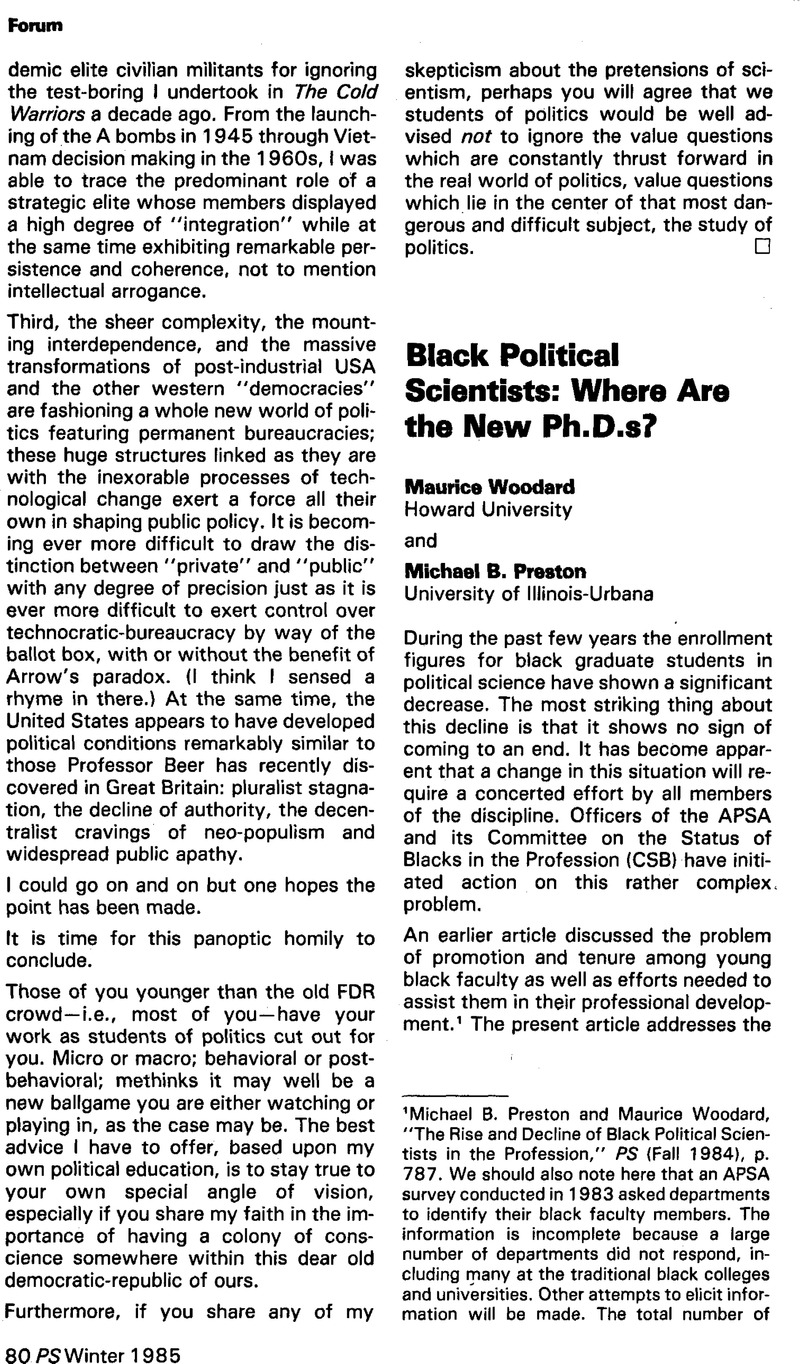Published online by Cambridge University Press: 25 November 2022

1 Preston, Michael B. and Woodard, Maurice, “The Rise and Decline of Black Political Scientists in the Profession,” PS: Political Science & Politics (Fall 1984), p. 787.CrossRefGoogle Scholar We should also note here that an APSA survey conducted in 1983 asked departments to identify their black faculty members. The information is incomplete because a large number of departments did not respond, including many at the traditional black colleges and universities. Other attempts to elicit information will be made. The total number of black faculty listed at both predominantly black and white universities is 151. However, other data compiled by the APSA Survey of Political Science Departments, 1982–83, show a total of 183. Whatever the case, black faculty at best number 183 out of a total of 5,114 or 3 percent of all political scientists. The list is presented in Appendix 1.
2 See Prestage, Jewel, et al. , “Report of the Conference on Political Science Curriculum at Predominantly Black Institutions,” in Blacks and Political Science, edited by Woodard, Maurice C. (Washington, D.C.: American Political Science Association, 1977), pp. 1–23.Google Scholar
3 For other pertinent research on this topic, see Prestage, , “Quelling the Mythical Revolution in Higher Education: Retreat from Affirmative Action Concept,” Journal of Politics 41 (August 1979), pp. 763–783 CrossRefGoogle Scholar, and “The Role of Black Colleges and Universities in Graduate Education,” in Black Colleges and Universities: Challenges for the Future, edited by Antoine Garibaldi (New York: Praeger, 1984), pp. 52–77.
4 Copeland, Elaine J., “Trends in Black Participation in Graduate Education: Barriers to Access, Possible Alternatives,” paper presented at the Second National Conference on Issues Facing Black Administrators at Predominantly White Colleges and Universities, Massachusetts Institute of Technology, Cambridge, Massachusetts, June 21–24, 1984.Google Scholar
5 For a more detailed discussion of these problems, see Copeland, ibid., pp. 5–10.